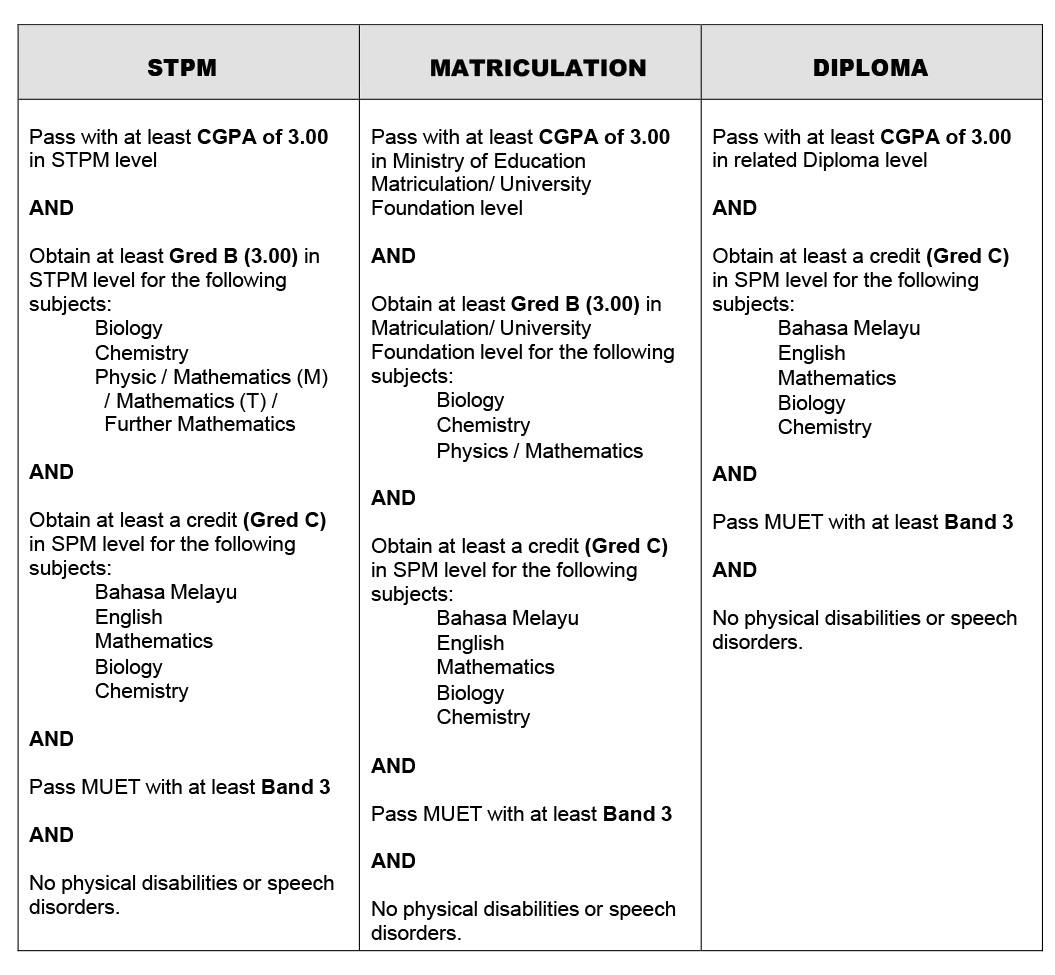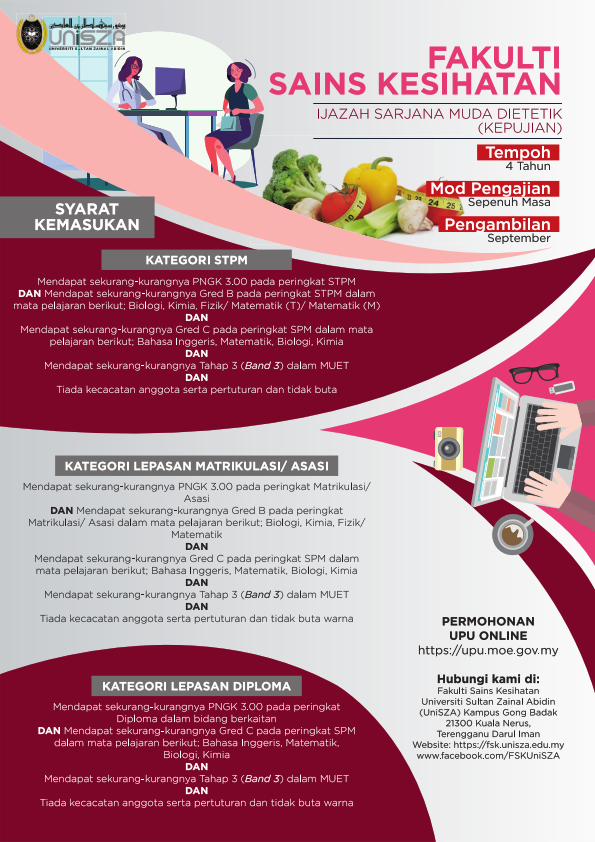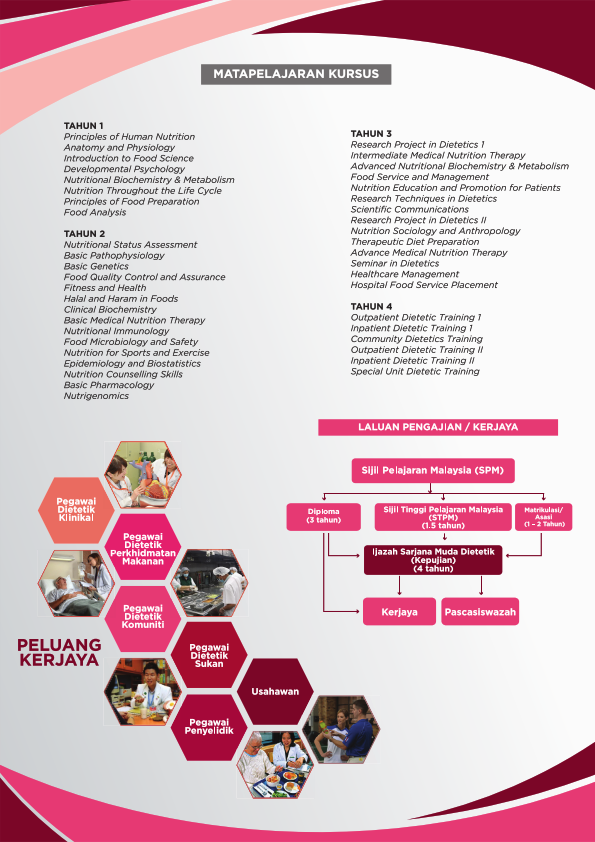BACHELOR OF DIETETICS (HONS)
Program Educational Objectives
Program Learning Outcomes

Clinical training is a compulsory component in Bachelor of Dietetics (Hons) program. It involves several attachments at Out-Patient Units, In-Patient Units (Medical, Surgical, and Gynaecology), Special Units (Paediatrics, Oncology, and Critical Care), Hospital Food Service Unit and Community Dietetics Unit. Clinical Training will be supervised by the Clinical Instructors and Local Preceptors at various facilities including Ministry of Health Malaysia Hospitals, Health Clinics and University Teaching Hospitals which UniSZA has a Memorandum of Agreement (MoA) with.
The assessment for clinical training will be based on end-of-semester examination and on-site continuous assessment which includes:
Those who fails in clinical examination in Semester 1 Year 4 for any course, will have to undergo an intensive clinical training for two weeks. At the end of two weeks intensive clinical training, there will be a special clinical examination. Those who pass this special clinical examination can move on to Semester 2 Year 4 and those who fails will have to repeat the whole semester again.
Meanwhile, those who poorly achieve less than 50% of continuous marks for any courses in Semester 2 Year 4 will have to undergo an intensive clinical training for three weeks. At the end of three weeks intensive clinical training, there will be a special clinical examination. Those who pass this special clinical examination can move on to sit end-of-semester examination and graduate and those who fails will have to repeat the whole semester again.
Those who pass in Clinical Training after undergoing intensive clinical training and special clinical examination will be given a maximum of 50 marks (passing mark) with Gred C for the course although their real marks would be higher than that.
Clinical Dietitians
Educator Dietitians
Food Service Dietitians
Community Dietitians
Research Dietitians
Sports Dietitians
Corporate/ Business Dietitians
